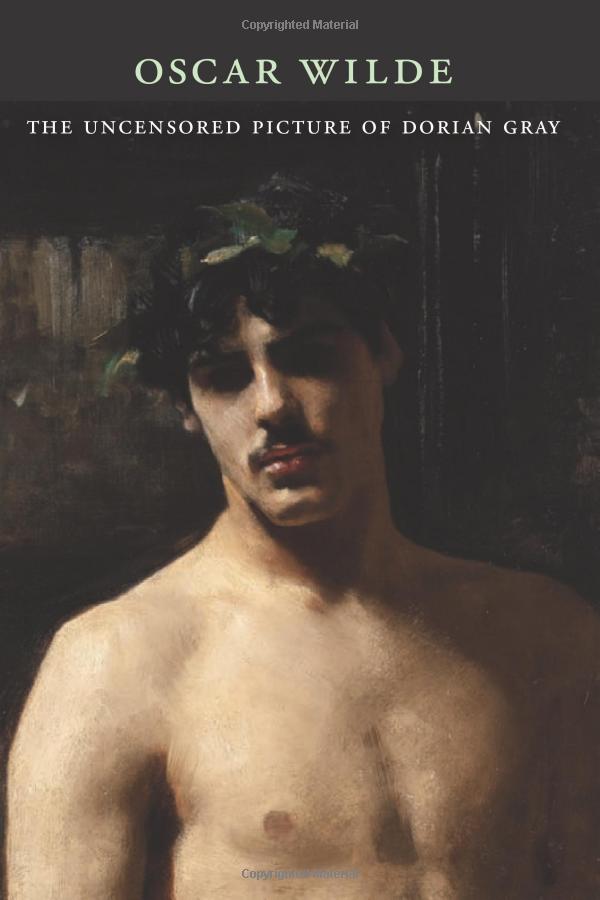
There’s a very interesting history behind this classic book, which was published about a year before Oscar Wilde’s trial and imprisonment. It was even used as evidence against him, although some of the more obvious passages were removed by Wilde and the publisher. They’ve been put back in and although the “vice” is never mentioned by name, it’s alluded to with terms like “abomination,” and references to “filthy places where sailors can be found along the docks.”
I’m pretty sure it was Wilde who came up with the phrase, during his trial, “The love that dare not speak its name.” It’s not mentioned, ever, in this uncensored book.
In Maurice, I think it was, they are reading something from ancient Greece and when one of the boys gets to a certain passage the teacher says, “Please skip the section about the abominable practice of the Greeks.” (Maybe they were reading The Satyricon.)
Anyway what I found interesting about this book — I don’t think there can be “spoilers” at this point — is how widely misinterpreted the book is. Everyone says, if you stay young looking well into adulthood, “You must have a painting in the attic.” They’re referencing Dorian Gray, thinking that the painting of himself that was hidden in the attic aged while Dorian did not. No, the painting did not absorb the ravages of Dorian aging into an older man, what the painting absorbed was his sins. And much of that sin included sleeping with men (or sailors — is about as close as they come to saying it outright). I think this could only be Wilde’s awareness of his Id trying to express itself, with Wilde’s Superego being the judge, jury and executioner. In my copy of The Ballad of Reading Gaol the person who wrote the introduction said that nothing is more boring than Wilde writing about Jesus or religion. And I think there’s a lot of truth to that. This book has a great deal of rattling on about the soul and the devastation of the soul through immoral acts — all of which wind up in the painting. But really it is about class. And in England, probably because of the monarchy and accents, you really can’t get away from class. Julian’s sin is actually that he is shaming himself in front of his peers — and they are shunning him because of what he’s doing shamelessly down at the docks. In fact, it is in some respects because of the fact that the hidden painting absorbs all his sins that Dorian is able to go wild with his basic desires.
I don’t think Wilde was ready to understand this. He may have come to understand it at some point, but when you’re in the middle of a system — a society — it is rather hard to see it. It’s like water to fish, or air to us hoomans.
Anyway, I enjoyed it. I could have done without the footnotes, but the introduction is well worth reading.
